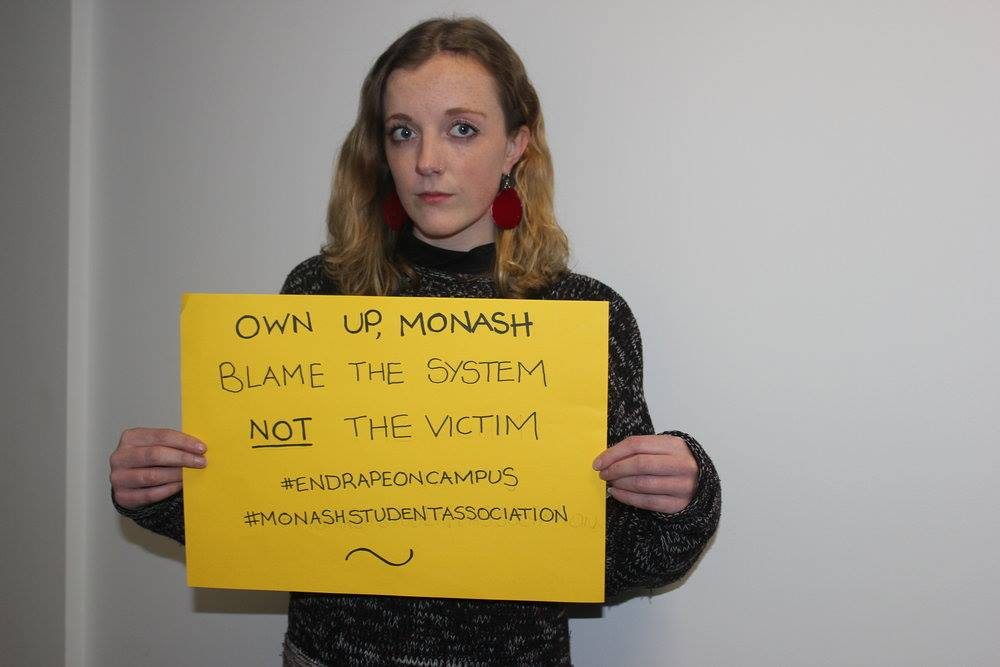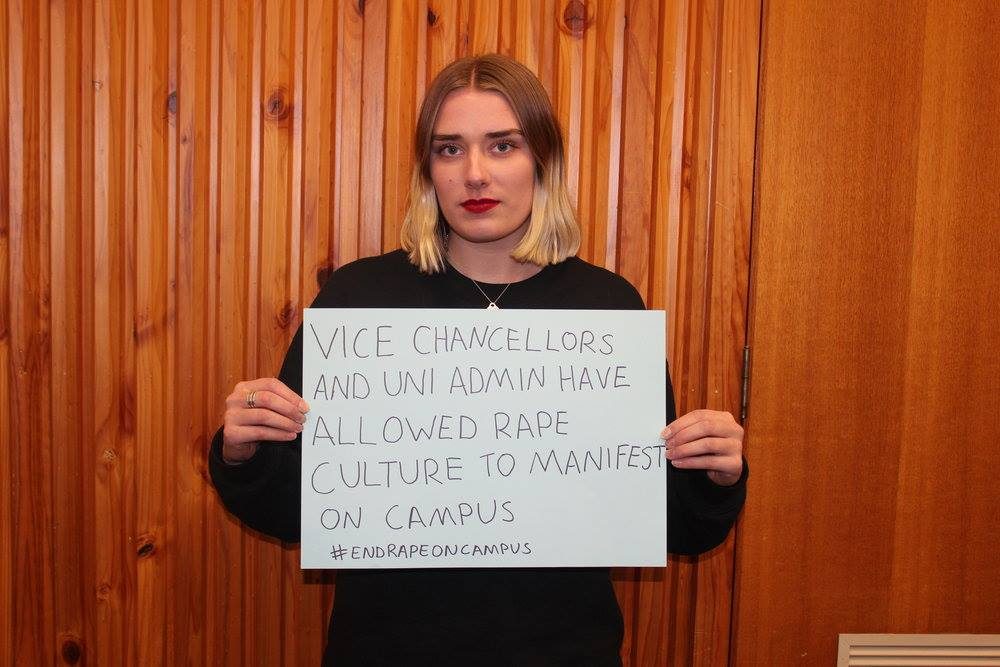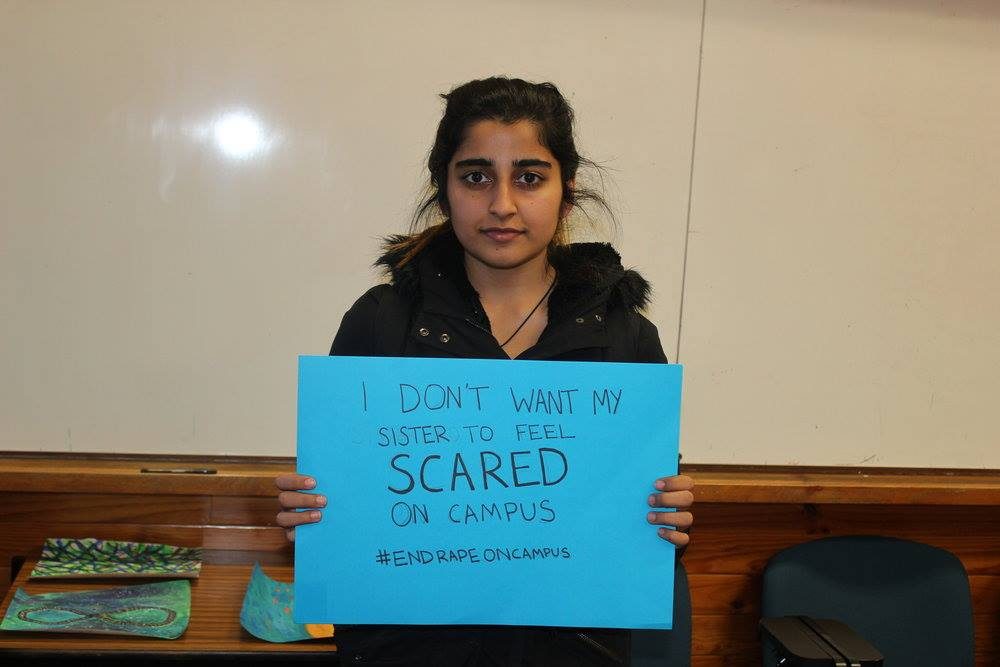How privileged we Monash students were to have a talk from Nina Funnell, a journalist who has been igniting the fight against sexual assault on university campuses across Australia.
Following the Brock Turner sexual assault case at Stanford university, Funnell decided to dedicate a year to reporting exclusively on the subject. The result: an 1800 sexual assault hotline specifically for university students, a commitment from all 39 Vice Chancellors to release university specific data on sexual assault, free training for Women’s Officers on responding to disclosure and vicarious trauma run by Rape and Domestic Violence Services Australia and countless others. The most profoundly stringent outcome: showcasing a hidden epidemic within universities.

Funnell, in her discussion, not only talked about her extensive research and the results of countless Freedom of Information requests (FOIs), but examined the problems with interviewing traumatised people and the vicarious trauma that manifests from reporting. Funnell expressed the idea of words, and how to choose them wisely so as not to abstain from the truth. On this argument she pointed out that there is a possibility of romanticising trauma when language is not utilised correctly.

Additionally, she discussed the importance of being wary of language, especially when finding a survivor to interview. Sensitive subjects require empathetic reporting.
Although Funnell was talking to a lecture theatre swimming with journalism students, the concept of vicarious trauma was a foreign term. It is a product of counter-transference after empathetically engaging with traumatised clients or reports of traumatic experience. She confessed to the underlying hardships of reporting over the past year and conveyed to us the importance of self, that a release of some kind is essential when interviewing and researching trauma.

Funnell has sparked a flame across universities. During her year of intensive journalism, she was invited to a secretive demonstration at Sydney University information lecture for parents of prospective students. Here, a brave number of students protested, angry at the universities blatant disregard of sexual assault. The response from security, to turn off the lights as they began to speak about their trauma. Funnell’s voice softened as she discussed the narrative of one student who stood up and hauntingly summarised the response of Sydney University to reports of assault in one sentence: this is how the university deals with sexual assault, in the dark.

During her talk, Funnell began to utilise the United States as a case study. Progress on sexual assault at universities is currently being undermined and reversed in the United States by their Secretary of Education Betsy DeVos and the Trump Administration. Therefore, it is more important than ever to fight back here in Australia.
In conjunction with this, as Monash began to introduce night classes and the issue of safety being more prevalent than ever in the media, the MSA women’s officer Shreeya Luthra worked tirelessly with the university to create more lighting around campus. An endeavour that proved highly successful. We now have streets to match our bright futures.
But this is not enough.
Nina Funnell while conducting her investigations began to work intimately with student associations, including the MSA, to create the 1800 hotline. In doing so there became an apparent and alarming need for more on campus support and full time councillors in order to shift perceptions. Casual councillors, although better than none, do not have enough institutional knowledge to give the students the help they need and deserve.
There is a unifying message to Funnell’s work: damage control tactics need to be dispelled. Instead, universities should be putting funds towards the safety of their students, not towards avoiding FOIs and retaining an image. The welfare of human beings should come before reputation.


